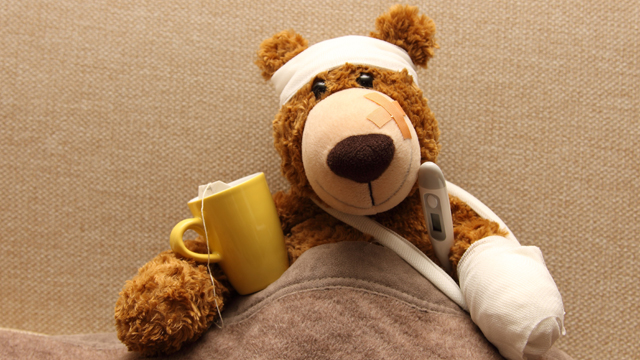
Think positive. It’s a common response we hear from our friends or loved ones when we find ourselves in the thick of a challenging situation. Kabbalists are not alone in cautioning against worry and the downward spiral of negative thoughts. Doctors also advise against it for good reason. It does little to promote wellness and, as studies show, can actually slow healing in the body. Kabbalah and science are now hand in hand in their support of positive thought as an antidote for physical as well as emotional health. Given this partnership, how can we use science and spirituality concurrently to strengthen our ability to heal ourselves?
Any doctor would agree that disease does not begin at the point of diagnosis. The development of an ailment is often imperceptible. Like a seed planted below the soil, much growth and change can happen before symptoms break ground and become apparent.
Pain is your body’s way of communicating that something is not right. It is our job to listen and take the appropriate steps towards healing ourselves physically and emotionally. Recovery often requires that we confront a problem that we’ve been ignoring or alter our behavior. For instance, someone diagnosed with type 2 diabetes will be put on a more restrictive diet as a result of a lifetime of poor eating choices; it’s cause and effect.
There are many ailments that benefit from medical intervention—a broken arm, for example. When we break a bone, we go to the hospital so the doctor can set it, wrap it in a cast, and send us home so it can heal properly. Yet, we are not inactive bystanders in the process. As Rav Berg states in the book, Days of Power, “If a person hurts his finger, the whole body immediately unites in the task of repairing and healing the wound... every cell in the body is affected by the event and is drafted to the war effort. One for all, and all for one!” Whether we are conscious of it or not, our bodies work hard to make us well.
The mind plays an equally active role in the healing process. The power of a placebo is universally known: 30 percent of patients who are given a sugar pill in place of a prescribed drug will report an improvement. But in order for the effect to take place, we have to believe that the pill will work. Is it possible to impose the same positive results on ourselves consciously, without being fooled?
The answer, as many studies have shown, is yes.
Last year, The Canadian Medical Association Journal published the findings of over 16 studies spanning 30 years, which illustrate the relationship between a patient’s attitude and their recovery. The Institute for Work and Health in Toronto found that patients who believed they would heal quickly often did. Those who felt doubt or fear in regards to treatment and the recovery process took longer to heal. These findings seem to point to the power of positivity as a tool for not only improving, but maintaining health and wellness.
Conversely, a study asked a group of women if they thought they were prone to heart disease. They discovered that women who believed they were prone to heart disease were nearly four times as likely to die from cardiac arrest as women with similar risk factors who didn’t view their heart health as potentially fatal. It had little to do with issues like age, cholesterol, weight, and diet. Instead, the risk was more closely linked to belief. In other words, think sick be sick.
This is directly related to placebo’s antithesis, the nacebo, which is Latin for I will harm. While the placebo effect refers to healing produced by a treatment that should have no effect, patients who experience the nacebo effect believe their health is much worse than it actually is, resulting in a decline in health status. The nacebo causes a physical effect, which is not produced by anything physical.
In a more recent study, researchers at the University of Wisconsin found that negative emotions activate areas in the brain, which directly impact a decline in the immune system. Dr. Richard J. Davidson, senior author of the report, says the report demonstrates, “The brain has the capacity to modulate peripheral physiology and it modulates it in ways that may be consequential for health.” While doctors continue to caution that genetics and environmental factors still play a role in one’s short and long term wellness, these studies support what kabbalists have been teaching for centuries—our energy and attitudes directly impact our wellness.
How can we affect our own health for the better? By maintaining positive energy we attract more positivity into our lives, improving it on multiple levels. Furthermore, by digging deep and seeking out the root of the ailment, whether emotional or physical, we can begin to make lasting changes for the better. As Rav Berg explains, “In order to remove the illness, the law of cause and effect similarly requires that we go back to the day on which we caused damage to ourselves or to others.” Ask yourself why you are experiencing pain or discomfort and where it is coming from. As you begin to uncover the source of your ailment, ask yourself what is blocking you from healing.
Being honest with yourself could mean changing habits. For instance, a shift in diet may be necessary. But it could also mean shifting your attitude in a positive direction. Maintaining a positive outlook could be the key to long-term wellness and fulfillment.
